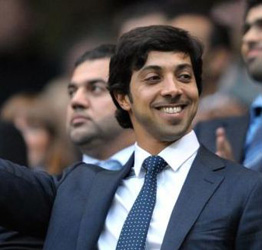Following on my earlier blog on FFP or Funny Fair Play, I think that Paris St Germain and Manchester City will lose no sleep over the rumoured sanctions which are about to be revealed at the end of this week. A £50 million fine payable over three years is loose change down the back of the sofa for these owners, who could spend that in two hours in the city of London. The adjudication committee of the UEFA Club Financial Control Board have evidently devised a set of sanctions that will teach these clubs a lesson. Don't hold your breath though. So what are these crippling measures? First the clubs are only being allowed to name 21 players in the Champions League squad including 8 home grown players as opposed to 25. Really? Most clubs only use 20 to 23 players and so this is hardly a realistic sanction. Secondly the clubs might be asked to limit their debt to £25 million instead of the £35 million limit for 2014/5 as the overall deficit must fall. Thirdly and most fascinating is the suggestion that the clubs might have to limit their payroll at the current stratospheric levels. This means new high value signings will be limited as players must be sold before adding new recruits so as to not increase the wage bill. This sanction is perhaps the most interesting and if this manages to deter the clever lawyers, then perhaps UEFA may have unwittingly stumbled upon a way to curb the excesses of the oil rich tycoons.
For the first time in European Football economics, the possibility of a real salary cap is being mooted. Now it is important to understand the differences between this proposed salary cap and the salary cap that is used in sporting franchises in the USA. In the USA, the salary cap has a ceiling and a floor. That is, the gross revenues of the leagues are divided by the number of clubs and then the sum left is the total amount that can be spent on players. Clubs can spend a lot on one or two star talents which leaves average wages for the squad players but they cannot exceed the cap. Equally the smaller clubs must spend up to the cap. Essentially the system is run on behalf of the clubs’ profitability. For the wage bills of all clubs to rise, the league itself must maximise it's own profits. Now lets look at the Premier League which almost does the opposite. The league is debt driven. The Premier League product as it likes to be referred to, is a form of entertainment which people will spend money to see. The profits generated are divided up among the clubs, but not equitably. The biggest spenders tend to win the major prizes. However if this consumes all of the revenues then the accounts will show a debt. This season they are trying to address this by introducing a short term cost control measure. Essentially this places a ceiling on increases in total wages bills.
It is well known that the salary system in European leagues is player led. The player will play for the club that offers him the highest salary. Simples! So if the club ends up in debt, who cares? At worst just spend a little time in administration and the club can emerge Phoenix like from the ashes with just a points deduction. Unless the club had realistic ambitions to be above mid table, a consistent run should see most clubs avoid relegation. Sensible and prudent spending at a club would realise wage to turnover ratios of 60%, however the likes of Manchester City and others have wage to turnover ratios of well over 80% and in the Championship this figure rises to 90% according to Deloitte. This means that the Premier and Championship leagues are driven by managing debts not maximising profits. The system is maintained by people’s desire to watch this product on Television. Without broadcasting revenues, the entire pack of cards would collapse. Players' greed sees no bounds and with agents on the same gravy train, the bubble just grows and grows. Whilst broadcasters like BSkyB continue to raise the bid ceiling to £3 billion for the Premiership product, then there is no quick end in sight.
The system is also driven by the confidence that legally in a free trade area, any caps or wage restrictions can be argued to be a restraint of the right of players to work and trade, which is essentially illegal under European employment legislation. However, if you join a private club, you have to agree to be bound by those rules, and providing your human rights are not infringed, the private club could possibly make rules which run counter to EU employment law. So now perhaps there is a loophole to the restraint of trade defence. That loophole is legal precedent. If a case has resulted in a certain landmark outcome and that outcome has not been overturned by appeal then that outcome is the benchmark ruling for all future similar cases. The Bosman ruling was one such precedent which acted in players’ favour. The new UEFA sanctions on salary caps could now see the power shifting back to the clubs and the governing bodies of the league. If it can be made to stick, then the precedent of a salary cap on clubs like Manchester City and PSG will have at long last been established. If the clubs don't like it then they will have to forfeit their right to play Champions League football. Methinks though, the lawyers will decide the fate of football finances in the end as the devil is in the detail yet to be revealed. Funny Fair Play Part 3 anyone?
Twitter@RTKafc_insider







